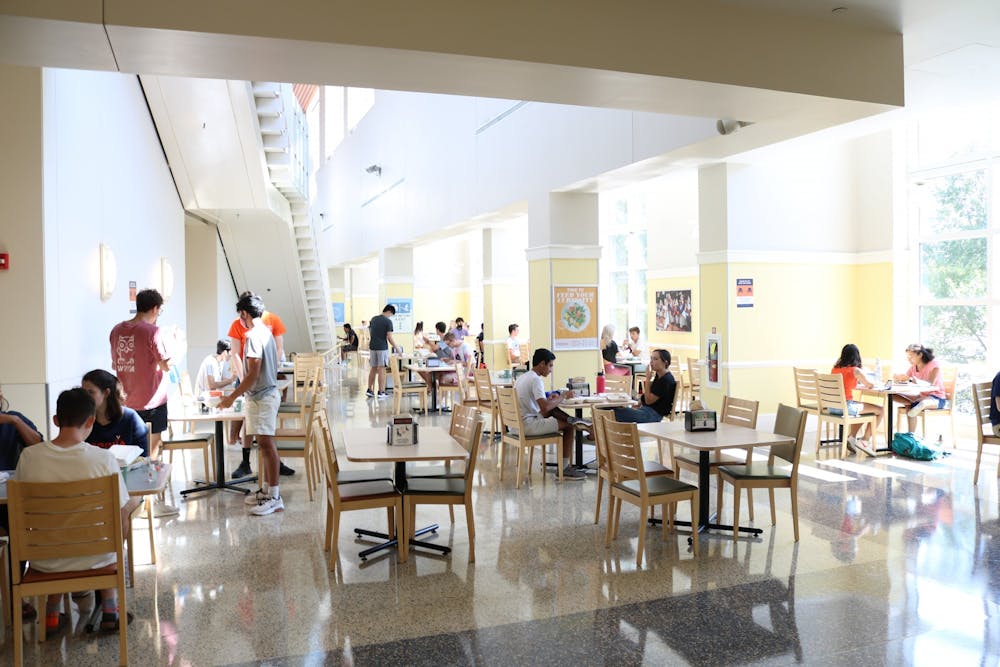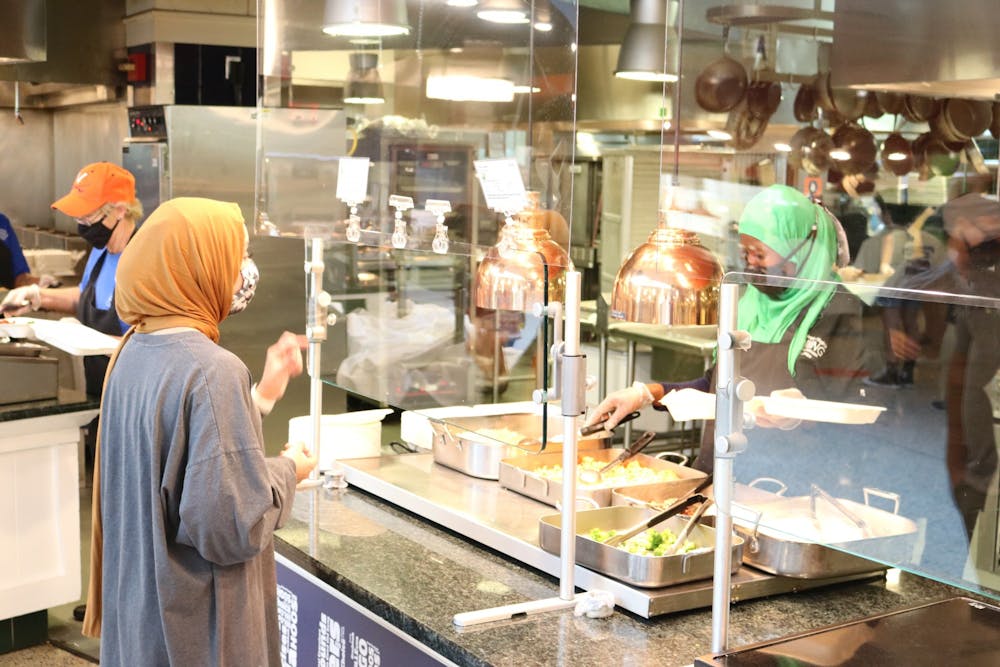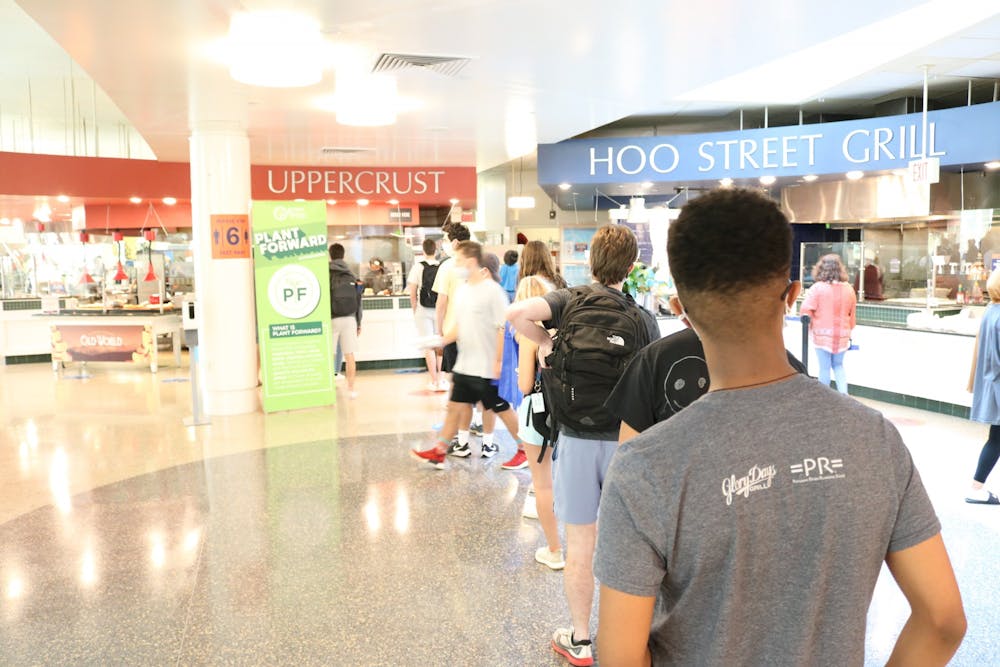中文版请点击此处
After an early September video circulated of students packed onto the stairs at Observatory Hill Dining Hall, the University began asking dining hall staff to stand on the stairs to enforce social distancing. Now, students stand six feet apart down the stairs during peak meal times and communicate with employees through masks and plexiglass dividers before finding a strategically distanced and frequently cleaned table at which to sit.
“We have added greeters to our busier locations like O’Hill to encourage social distancing, ensure students are wearing masks and monitor capacity,” University Aramark Marketing Manager Sarah Gordon said.
Last week, Fresh Food Company at Newcomb Hall stopped staffing soft drink fountains after previously using plexiglass and stationing employees to fill cups for students. The facility is now following the same protocol as Observatory Hill and Runk Dining Hall, which allow guests to fill their own cups, provided that the equipment is frequently sanitized. All three locations are limited to 30 percent capacity, which is in adherence with policies from the Virginia Department of Health.

“There are diverse practices between the dining rooms because of space limitations that require different traffic flows and solutions for line queuing,” Gordon said.
These initiatives compose part of a larger plan to keep on-Grounds food service safe and accessible.
“We have created solutions during this time that allow us to continue many of our operations normally,” Gordon said. “The most influential changes at this time are the added to-go options and the capacity and seating limitations in the dining rooms based on the Virginia Department of Health recommendations.”
Normal operations for this fall look very different from how they have in the past. The University has invested in pandemic-specific signage to promote social distancing and mask wearing. It has also put an increased emphasis on advertising retail locations that accept flex dollars, such as Chick-fil-A and Subway, which both use GrubHub for online pre-ordering and take out, to prevent overcrowding from occurring in the first place.

“There were more options in terms of locations than I was expecting,” first-year College student Phinney Sachs said. “Sometimes there are ‘rush hours’ for food where [overcrowding] gets kind of dicey, but I think that the sanitary [measures] have been pretty good. It’s hard to get any more sanitary than how it is now.”
The most significant change is in the accessibility and promotion of to-go options from all on-Grounds dining facilities. Students are encouraged to use reusable bags provided by U.Va. Dining to “take multiple to-go meals at once” if they would like to cut down on the number of trips they make to dining halls.
“In addition to eating in dining rooms, students can pick up food or have it delivered,” Gordon said. “With additional retail locations and food trucks located around Grounds, students can now use their meal plan at many dining locations. A new delivery service app called Good Uncle has also partnered with dining to provide quality hot meals throughout Grounds, and students can pay with flex dollars.”
Whereas other delivery apps serve as a middleman between restaurants and students, Good Uncle makes and delivers its own “chef created” meals in college towns across the country.
In addition to Good Uncle, which is new to Charlottesville, students can still use GrubHub for pick-up and pre-order at additional locations both on- and off-Grounds.
Aramark acknowledged that one-size-fits-all solutions would not be sustainable for the varied needs of each facility. That’s why it has made adjustments to seating capacity, staffing and operations at different locations on Grounds.
“We staff our locations based on needs,” Gordon said. “We have had to adjust our staffing levels to match reduced demand. We look forward to returning to our original model once Grounds returns to full capacity.”
It is possible that there may be further operational modifications to food services this fall because of the pandemic. When the University found a cluster of cases in the Balz-Dobie residence hall in September, it set up a table for food outside of Observatory Hill for residents to pick-up meals from.
In an email to students detailing potential COVID-19 contingency plans, Provost Liz Magill and Chief Operating Officer J.J. Davis said that an uptick in cases may trigger dining that is “limited to pick-up, mobile ordering, and/or grab-and-go.” In the event that the University triggers these contingency plans, dining room seating would not be available but all locations would resume otherwise normal operations.







